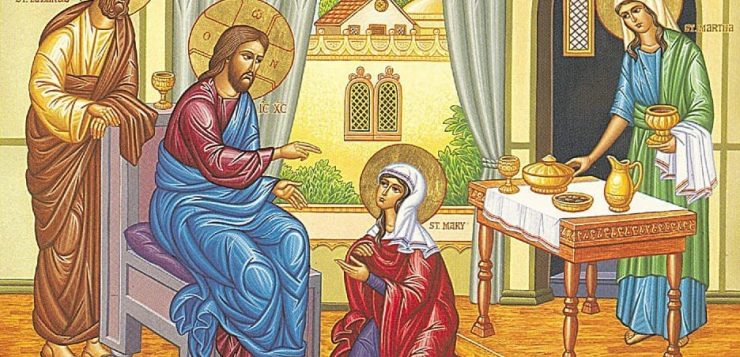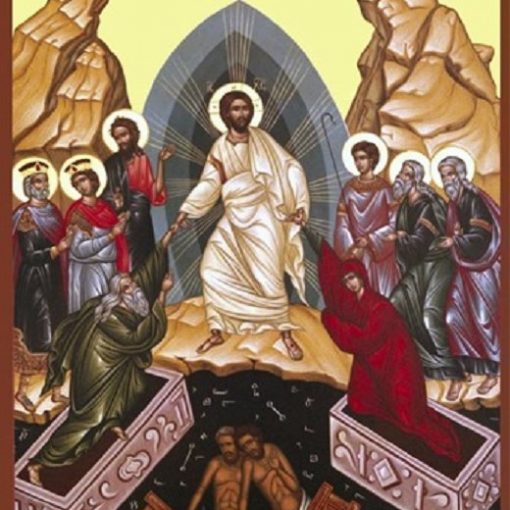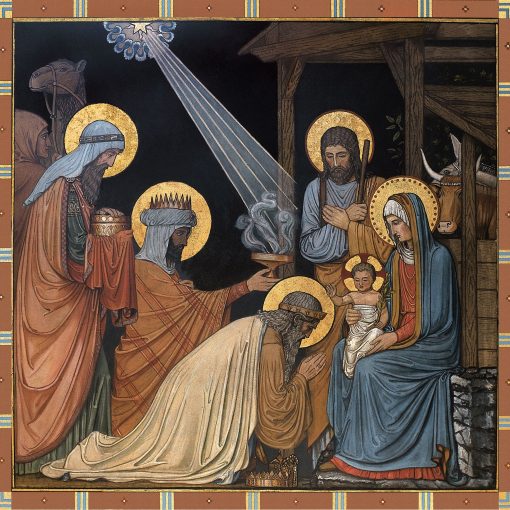In the Byzantine Liturgical Calendar, today is Lazarus Saturday:
Our Lord Jesus Christ revealed so much of His natures and His design for us in the weeks just preceding His passion.
First (that is, first that we shall at present consider), He very recently received the penitence and adoration of Mary of Bethany, who washed His feet with her own tears and hair, and anointed His head with fragrant oil.
Holy Tradition maintains that this is meant to show us that God receives sincere repentance even very late, after long-standing patterns of repeated and habitual sin, or on the brink of our doom.
One might wonder how this incident shows this lesson, and we think perhaps we might have some idea: it was the brother of this same Mary, and her sister Martha, that died soon after Mary’s contrition, five days before Jesus’ entry into Jerusalem, and, while the Gospels report that Jesus had particular love for all three of these persons, it was His response to repentant Mary’s grief that Our Lord prayed to God (a profoundly human act, one which we shall see again in the garden at Gethsemane) and called her brother Lazarus out from his tomb, from which he did presently and immediately emerge even after four days dead and buried.
It is not only this alone that is revealed in the raising of Lazarus. Naturally also, this event confirms the prophets’ assurance of our hope for our own resurrection by the grace of God, particularly that in which which we baptized in Christ’s Name share on the Last Day. Furthermore, it was this singularly great Wonder, among the many Our Lord Jesus Christ worked during His terrestrial incarnation, that stands out for igniting the convictions of many of the Jews in and near Jerusalem, preparing for Passover, so that upon learning of the raising of Lazarus, many who had not yet resolved to believe in Jesus as the Christ, the Son of the Living God, Who had come into the world to save sinners, then finally did so.
A final point, or few points, for consideration on this Holy Day is what is revealed not about God, or Jesus, but about man.
Indeed, the raising of Lazarus inspired the belief of many that would be converts, and by doing so, it also incited the machinations of those who conspired to destroy Jesus.
Rather than praising and worshiping Christ, the high priests and Pharisees who called the Sanhedrin to address this great occurrence were certain Jesus must be stopped, for fear of reprisals by the Romans against the Jewish state. We recall especially the name of the high priest Caiaphas who explicitly recommended Jesus’ death, and what is interesting to us is what John goes on to say:
“51 – He did not say this on his own, but as high priest that year he prophesied that Jesus would die for the Jewish nation,
52 – and not only for that nation but also for the scattered children of God, to bring them together and make them one.
53 – So from that day on they plotted to take his life.” Caiaphas is remembered in infamy, we believe, by many Christians because of his apparent enmity of Christ, but this passage suggests to us that Caiaphas’ weaknesses of character were part of God’s design for the eventual recall of Adam; Jesus Christ had to die for us, so that we shall live in Him, resurrected and ascended into the eternal glory of God.
– Mor Clement
May the Father of Lights, Our Master and Illuminator, Jesus Christ, and the All-Holy Spirit grant us peace and hope, and make Divine Grace shine upon us all.
– +Cherubim Abu-Seifein Akiiki





